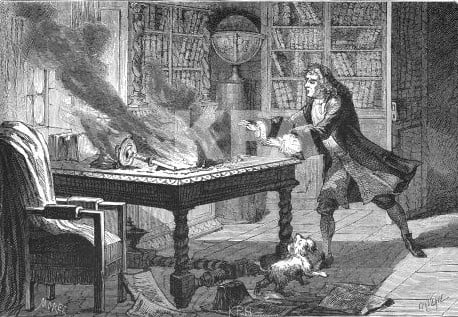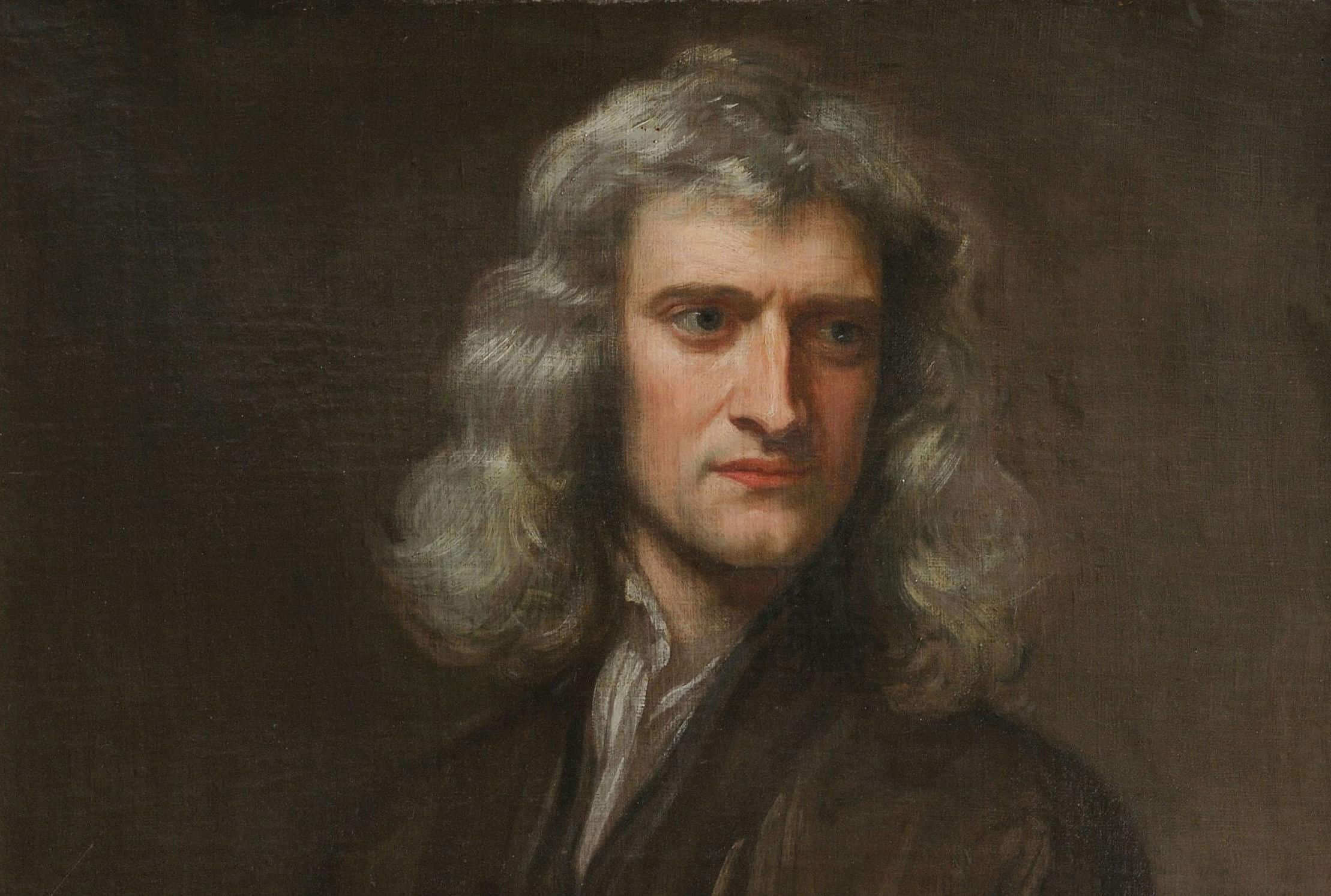Isaac Newton’s IQ
Experts estimate that Isaac Newton’s IQ was between 190 and 200.
To put this in perspective, the widely accepted threshold for genius IQ is 130. If you have an IQ of 130 or above, you are in the top 2% of the world’s population.
It’s important to note that Newton did not live during a time when IQ was measured through standardized testing. In fact, a French psychologist named Alfred Binet developed the concept of IQ in the 1900s, long after Newton’s death.
In the absence of a standardized assessment, experts estimated Newton’s IQ by evaluating his contributions relative to those of others.
What Made Isaac Newton So Smart?
In addition to a high IQ, Newton had to possess certain personality traits and characteristics to achieve his objectives.
Let’s explore these in further detail.
Perseverance
One of Newton’s defining qualities was his perseverance. Without it, Newton could not have overcome the difficulties he faced in life, including the death of his father, his mother’s desire for him to become a farmer, and his family’s limited financial means.
Despite these obstacles, he demonstrated remarkable resilience and resourcefulness. He found alternative ways to access education and contribute to the academic community.
Curiosity
Newton’s curiosity was a driving force behind his intellectual achievements. He possessed an innate desire to understand the world and its mysteries. He asked fundamental questions about the nature of things and relentlessly pursued answers through observation, experimentation, and analysis. Newton’s inquisitive mindset led him to explore various subjects including physics, mathematics, optics, and alchemy.
Creative and Analytical Thinking
To tackle the problems no one had yet answered, Newton needed to employ a combination of analytical and creative thinking. Newton’s ability to think both creatively and analytically allowed him to approach complex problems from multiple angles.
While his analytical mindset enabled him to break down intricate problems logically, his creative thinking led him to experiment boldly, forging new paths that others hadn’t considered.
Intense Focus
Isaac Newton was obsessed with pushing the limits of human knowledge. He never married and had few friends who he mainly chose to write to. Rather than spending time with loved ones, Newton preferred to be on his own.
In his solitude, he spent around 18 hours studying every day. This intense focus allowed him to explore concepts fully and arrive at conclusions that eluded others.

Is Isaac Newton the Smartest Person Ever?
In short, no, Isaac Newton is not the smartest person ever. However, there are only a handful of individuals whose IQs surpass his.
However, IQ is a limited metric because it only measures specific cognitive skills like logical reasoning, problem-solving, memory, and mathematical abilities. It doesn’t account for other skills that could make a person “smart,” such as emotional intelligence, social skills, practical life skills, adaptability, creativity, and general wisdom.
About Isaac Newton
Early Life and Education
Isaac Newton’s father passed away just three months before his birth on Christmas Day in 1642 (January 4, 1693, according to the current Gregorian calendar). Following his father’s death, Newton’s mother, Hannah Ayscough Newton, encountered financial challenges and remarried. As Newton’s stepfather was unwilling to raise another man’s child, Isaac was left in the care of his maternal grandmother at the age of three.
Although Newton might have followed in his father’s footsteps to become a farmer, his grandmother recognized that he was meant for more extraordinary things. At 12 years old, he began attending The King’s School. However, he had to leave school when his mother was widowed again and attempted to steer him towards farming — an occupation he despised.
Fortunately for Newton, the headmaster of the school intervened on his behalf and persuaded his mother to allow him to continue his studies. Newton went on to become a top-ranked student and eventually attended Trinity College where he discovered the binomial theorem.
To cover the cost of tuition, Newton became a sizar, performing menial tasks like waiting tables in the college’s dining hall, fetching library books for senior members of the college, assisting professors by preparing class materials, and even cleaning common areas of the college.
Rise to Prominence
Following Newton’s graduation from Trinity College in 1665, the outbreak of the Bubonic Plague forced him into a period of self-isolation. During that time, Newton significantly advanced calculus, optics, and the law of gravitation.
In 1667, Newton returned to Trinity College where he was elected as a fellow. In the following years, fellows were strictly required to be ordained as priests, but Newton’s unconventional views prevented him from conforming to this requirement. However, the King of England gave Newton special permission to become a fellow anyway.
Freed from traditional constraints, he could fully immerse himself in scientific exploration and publish some of the most important scientific breakthroughs in history.

Newton’s Contributions to Mathematics
Although Isaac Newton made many discoveries, we’ve listed the most notable below.
The Laws of Motion
In 1666, Newton developed the three laws of motion that explain how objects move.
The first law introduces the concept of inertia, where both stationary and moving objects maintain their state unless acted upon by an external force.
The second law of motion states that force equals mass times acceleration. In simple terms, heavier objects require more force to move than lighter objects.
The third law of motion explains how everything interacts, stating that every action has an equal and opposite reaction.
Optics and Light
In 1672, Newton proved that white light is composed of a spectrum of colors. In his experiment, Newton revealed the rainbow within by using a prism.
The Law of Gravitation
In 1687, Newton published his law of gravitation. It states that the gravitational force between two objects increases as they get closer and decreases as they get further away.

Lessons from Newton’s Life
Some historians speculate that the unfortunate events in Newton’s life, such as the loss of his father and subsequent financial hardships, may have fueled his drive to excel.
Notably, Newton’s most significant contributions to mathematics were made during a period of quarantine, much like the one we experienced during the COVID-19 pandemic.
Newton’s story underscores that personal struggles don’t have to hinder our progress. Instead, challenges can be channeled into productive outcomes.
Up Next:
If you’re interested in learning more about other influential individuals, we suggest the following articles:
- What is Albert Einstein’s IQ? Was He the Smartest Person Ever?
- What is Elon Musk’s IQ? Is He Really the Smartest Man on Earth?
The image featured at the top of this post is ©Godfrey Kneller / public domain.
